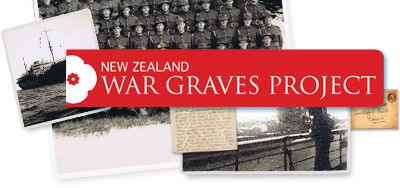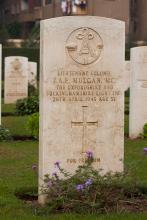John Alan Edward Mulgan was born in Christchurch on 31 December 1911, the elder son and second of three children born to Marguerita Blomfield Pickmere and her husband, Alan Edward Mulgan. His father was a journalist on the staff of the Christchurch Press; his mother had been one of the first women to gain a master's degree at Auckland University College. When John was four, Alan Mulgan was appointed a leader writer for the Auckland Star and the family moved to Auckland. John attended Maungawhau School, and, after boarding at Wellington College from 1925, went on to Auckland Grammar School in 1927. He did well at school academically and in sport, especially rugby, boxing and cricket. In 1929 he won a university scholarship. At Auckland University College he continued to distinguish himself, standing out as a student leader of moderate political views, though he was later to become more left-wing.
Even as a young boy John Mulgan's interest in the written word was strong. Both his parents influenced him: his father in the art of composition, and his mother in the analysis of classical works and contemporary literature. He wrote prolifically for student publications in Auckland. Described by a university friend as 'a slim young man with fair curling hair and a quiet, laconic manner', Mulgan had an intellectual brilliance and remarkable aptitude for outdoor pursuits that impressed all who knew him.
In 1931 he was nominated for a Rhodes Scholarship, but the selection committee thought him too young and advised him to come back the following year. When nominations were called for at Auckland University College in 1932, Mulgan's name was submitted by the students' association. Inexplicably, the professorial board gave the nomination to two other men. The selection committee in Wellington refused to award any scholarship, the chairman, Lord Bledisloe, expressing the view that all the applicants were inferior to Mulgan. He graduated BA in 1933, but again missed selection. In October, backed by his father, he sailed for England and took up residence at Merton College, Oxford.
In July 1935 he was awarded a first in English, and accepted a position with the Clarendon Press. There he was responsible for commissioning and overseeing the production of scholarly works. The impulse to publish found outlet in his anthology Poems of freedom(1938), and also in The emigrants (1939), an account of early travellers to New Zealand, in which he collaborated with Hector Bolitho. He also wrote his novel Man alone at this time. On 10 July 1937 he had married Angela Gabrielle Wanklyn, secretary of the Oxfordshire Nursing Federation, and in March 1940 a son, Richard, was born.
During these years Mulgan followed with close interest the progress of fascism in Europe. In 1936 the New Zealand government had appointed him an observer at the League of Nations in Geneva, and in collaboration with his close friend, Geoffrey Cox, he contributed regular articles on foreign affairs to the Auckland Star under the title 'Behind the cables'. His perception that war was inevitable impelled him to volunteer for the Territorial Army in 1938, and he was gazetted second lieutenant in the Oxford and Buckinghamshire Light Infantry. When war came in 1939 he reported immediately to his regiment. His wife and child he sent to safety in North America in June 1940; they eventually reached New Zealand in 1941 and remained there.
John Mulgan spent nearly two years in Northern Ireland, but chafed at the tedium of garrison life. In 1942 he succeeded in getting himself transferred to the 4th Battalion of the Queen's Own Royal West Kent Regiment, which was proceeding to the Middle East. Now a major, he became the battalion's second in command. Over the next eight months Mulgan witnessed the mostly poor performance of a series of commanding officers from the regular army. The final appointee, it seemed to him, was the worst of all, and a danger to his men. He conveyed his opinion to general headquarters, at the same time seeking a transfer for himself.
In May 1943 he accepted a posting to Force 133, the British unit assisting the Greek partisans to harass the German occupation forces. Mulgan parachuted into Thessalía in September 1943 and set up his command post on Mt óthris. He gained the confidence of the local bands, mounting sabotage operations against road and rail traffic. The climax came in September and October 1944, when the German withdrawal was in progress. Mulgan's men, armed only with small arms and mortars, halted an entire German division for several days, destroying much of its transport and inflicting heavy casualties. Subsequently Mulgan was awarded the Military Cross.
Recalled to Cairo in November, Mulgan was negotiating a transfer to the 2nd New Zealand Division in January 1945 when he received promotion to the rank of temporary lieutenant colonel, and orders to return to Athens to locate and compensate the Greeks who had fought for Force 133. It proved a melancholy task. The civil war had raged in his absence; the English were now disliked. Mulgan seems to have become increasingly disillusioned as he observed the chaos resulting from war and what seemed to him the failure of socialism. He completed at this time the manuscript of his memoir, Report on experience, which he posted to his wife in New Zealand.
In mid April 1945 he was back in Cairo, billeted at a hotel. On 26 April he was discovered dead in his bed: he had taken an overdose of morphia. In December a consular court brought in a verdict of suicide. He was buried in the military cemetery at Heliopolis.
John Mulgan’s untimely death cut short a writing career that seemed full of promise. His literary reputation rests on two works: the novel Man alone (1939) and the memoir Report on experience (1947). Though in 1945 the novel was known to few readers in New Zealand (most copies were destroyed in the London blitz), a New Zealand reprint in 1949 was the first of many. It seemed to touch a nerve with readers and writers in the 1950s and 1960s. The style of the novel is reminiscent of Hemingway, but the content is a distillation of New Zealand life seen from the angle of the social underdog. It also memorialises the depression riots, a turning point in New Zealand's history.
Report on experience is notable for the deftness of its journalistic skills. Mulgan's interest in politics is everywhere apparent, and now and then he reveals a wisdom rooted in profound humanism, and also a nostalgic yearning for his native land. The fact that it was written between episodes of carnage in the Greek mountains makes even more remarkable the 'perception, poetry and passion' that one British reviewer discovered.
Those who knew John Mulgan agree on the attractive openness of his personality; he was affable, cheerful and outgoing. His leadership qualities were proven in war and he showed himself capable of exceptional courage and daring. But there was another side to Mulgan's character, rarely glimpsed. One of his colleagues at the Clarendon Press detected 'an underlying melancholy', which he attributed to Mulgan's 'feeling of being between two worlds'.
Source: Paul Day. 'Mulgan, John Alan Edward', from the Dictionary of New Zealand Biography. Te Ara - the Encyclopedia of New Zealand, http://www.TeAra.govt.nz/en/biographies/4m68/mulgan-john-alan-edward


